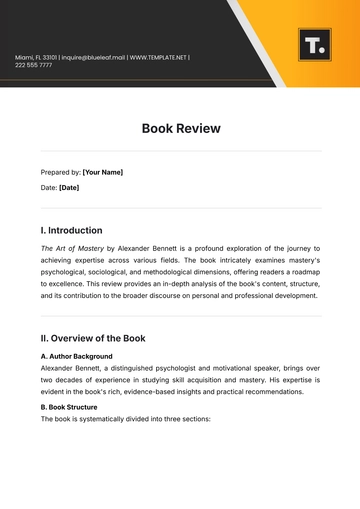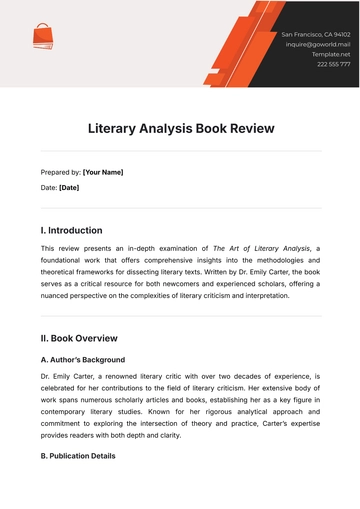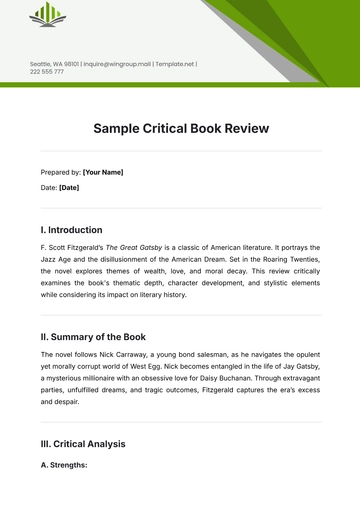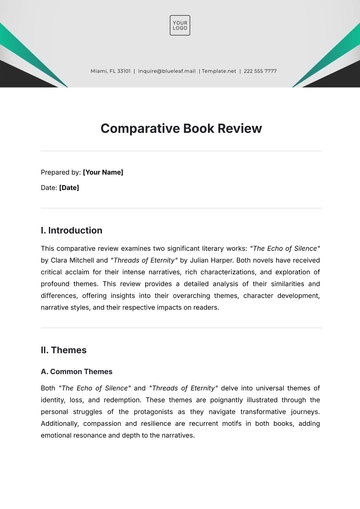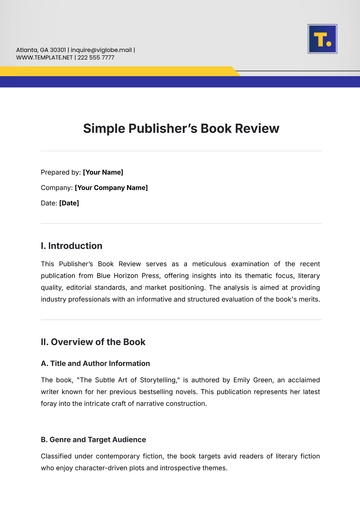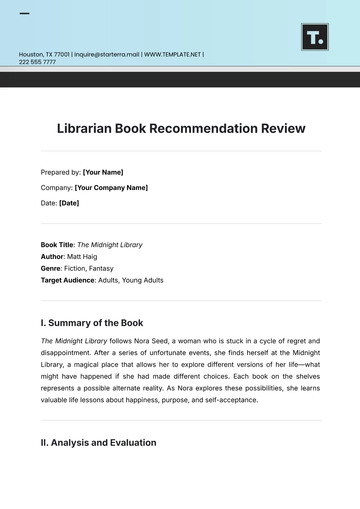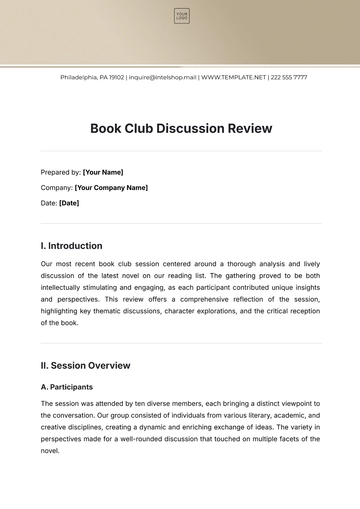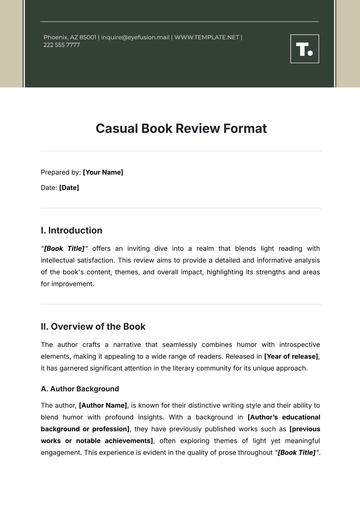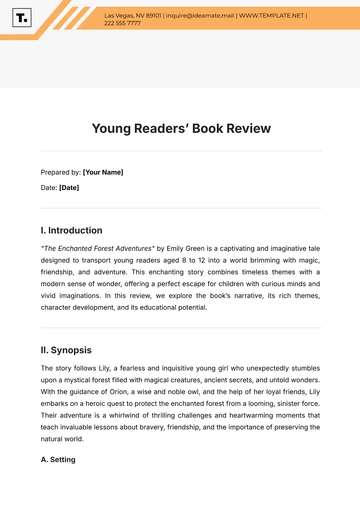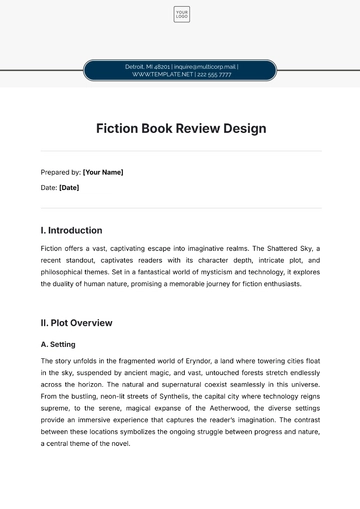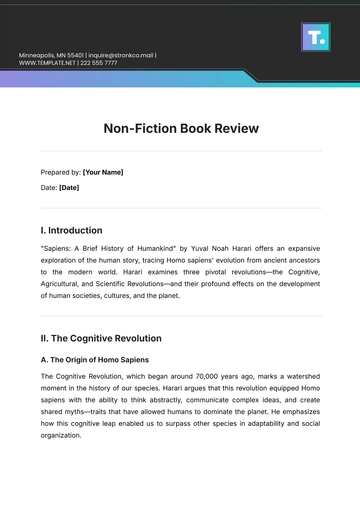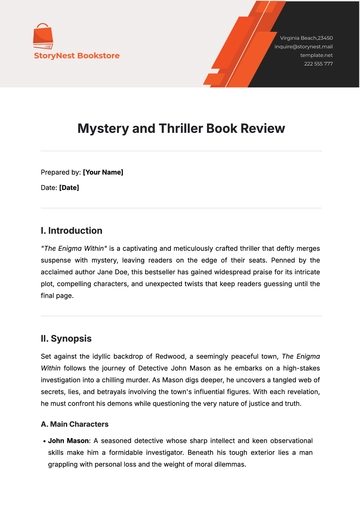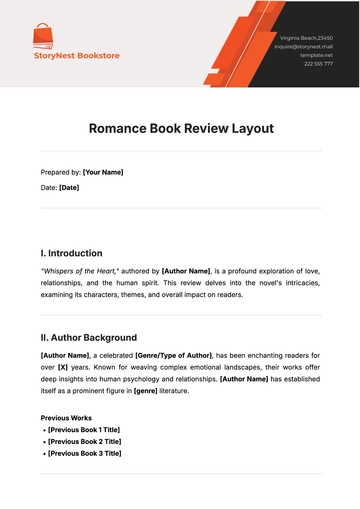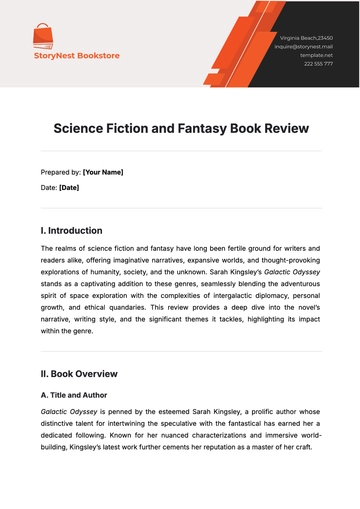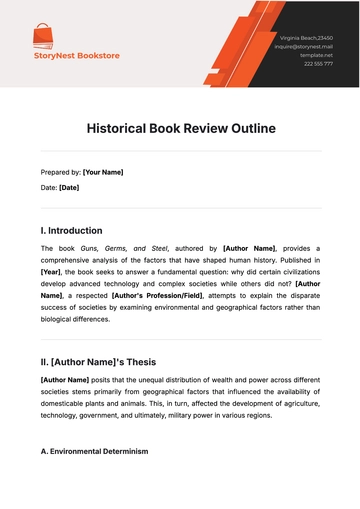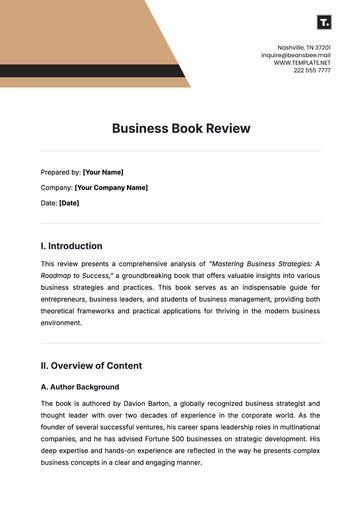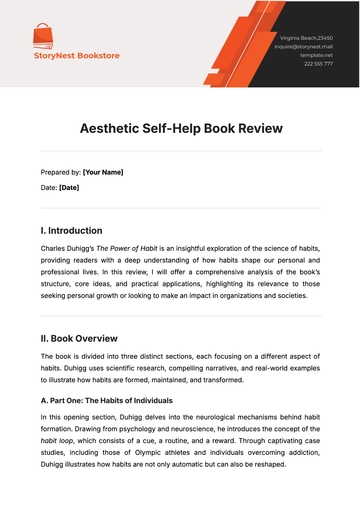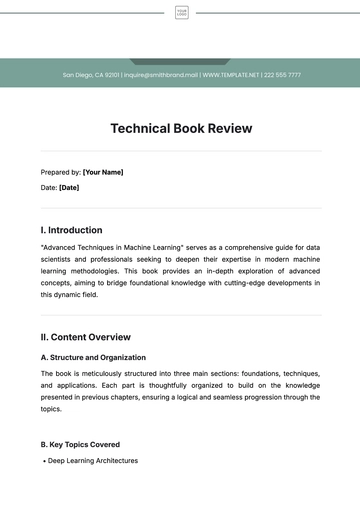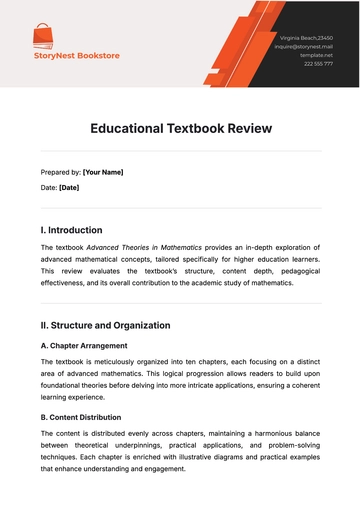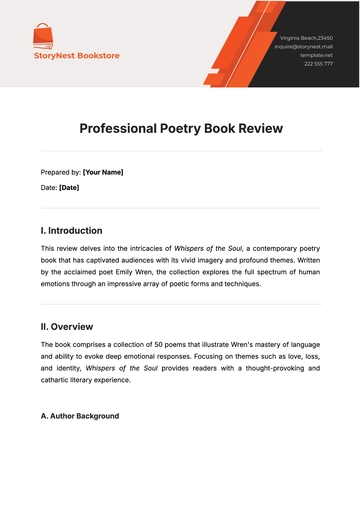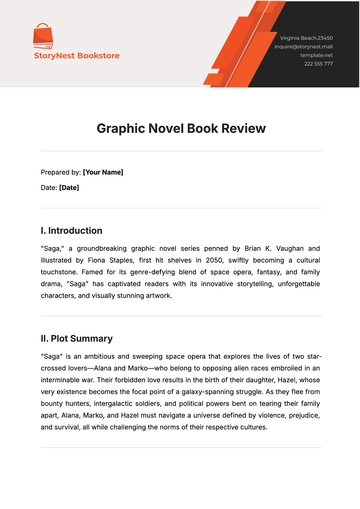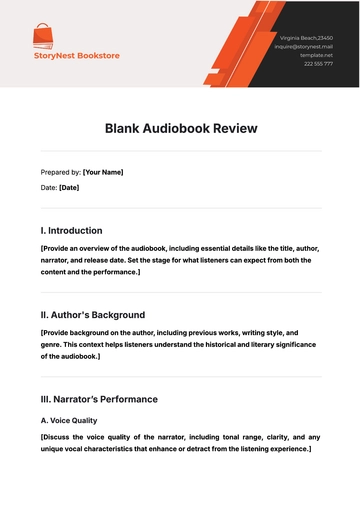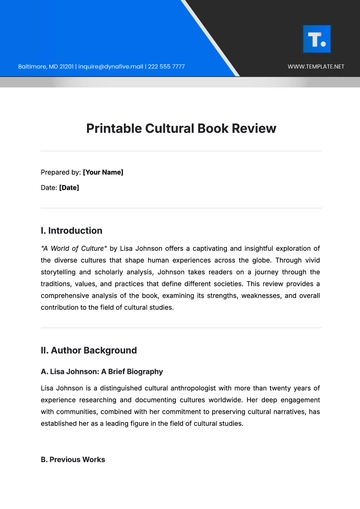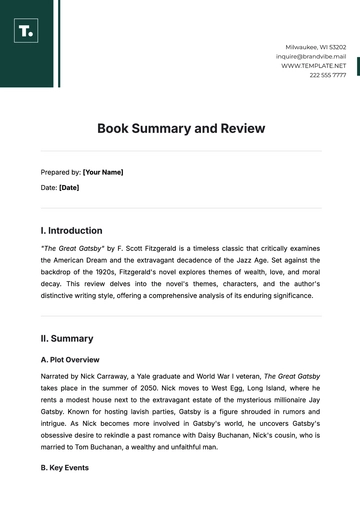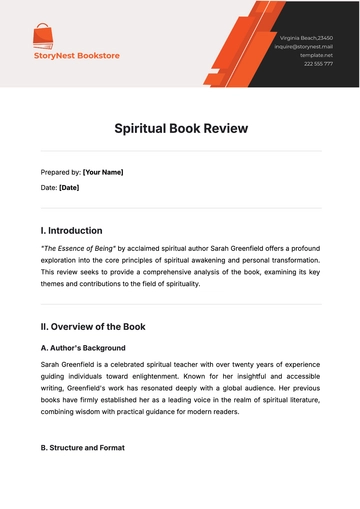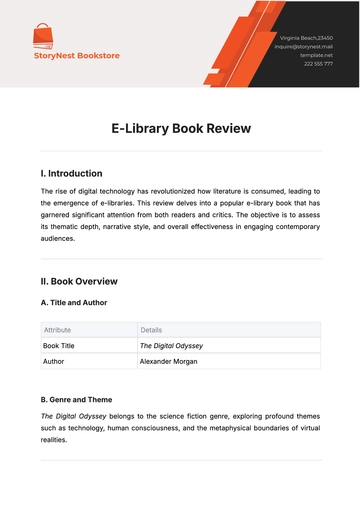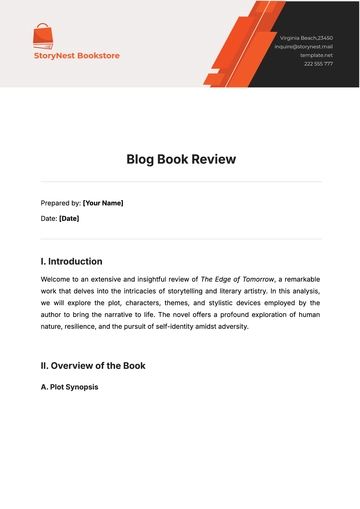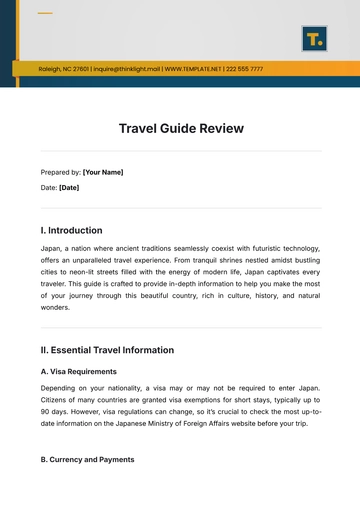Free Book Review Research Paper
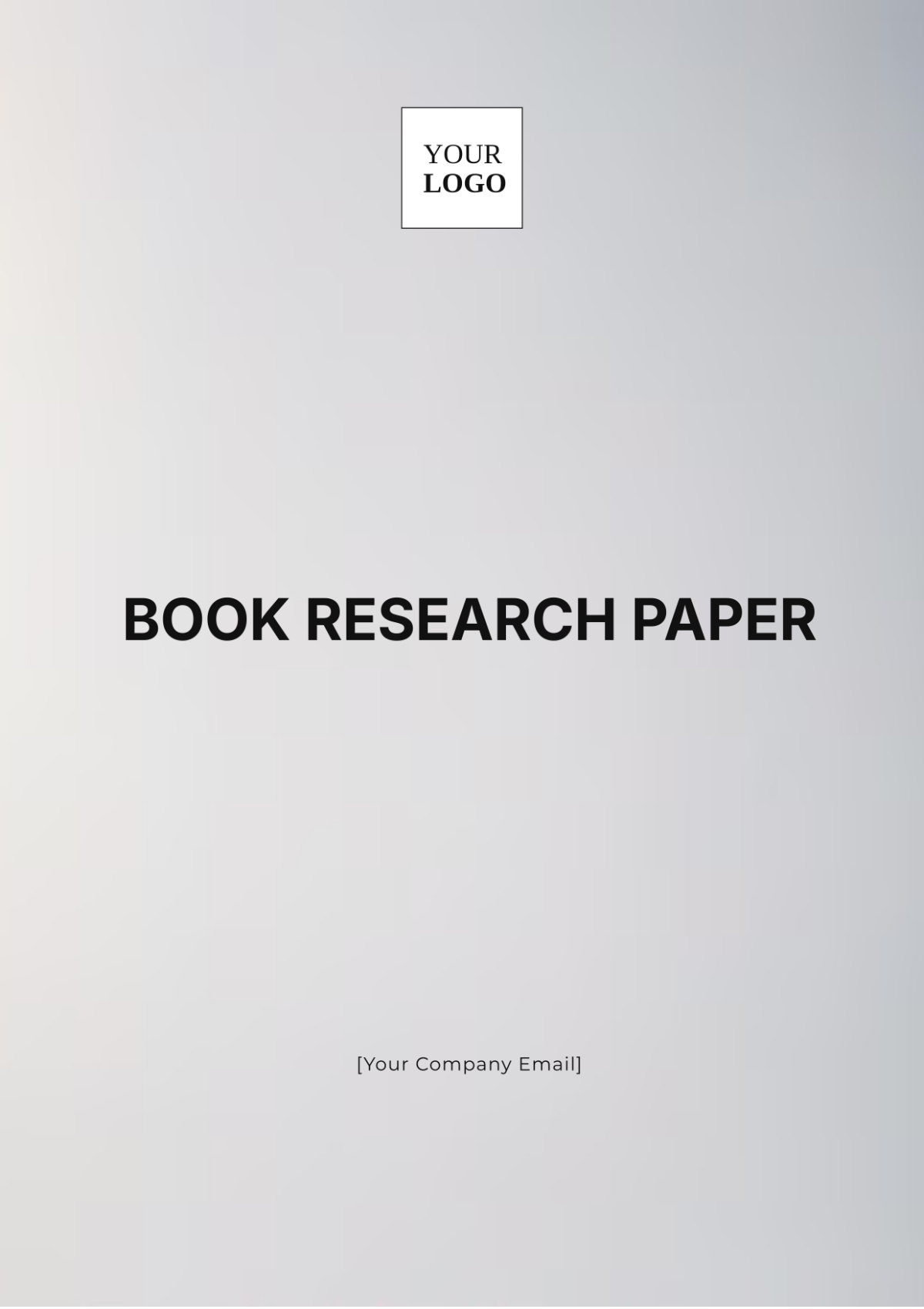
I. Abstract
This research paper delves into the elements and techniques involved in crafting an effective book review. We will examine the purpose of book reviews, the structure of a compelling review, and the evaluation criteria. Moreover, this research will offer practical guidelines and tips to enhance the quality of book reviews.
II. Introduction
Book reviews serve as critical tools for communicating the value, quality, and significance of literary works. They guide readers in their literary choices and provide authors with constructive feedback. This paper endeavors to explore the intricacies of writing book reviews, highlighting the steps necessary to produce in-depth, balanced, and informative critiques.
III. Purpose of Book Reviews
Book reviews fulfill several roles, including:
Informing potential readers: Offering insights that help readers decide if a book will suit their preferences and interests.
Critiquing the content: Evaluating the strengths and weaknesses of the book and providing a balanced view.
Providing feedback to authors: Highlighting areas of success and improvement in the book's narrative, style, and structure.
Contributing to literary discussion: Engaging with other book reviewers and readers to enhance collective understanding of literary works.
IV. Structure of a Book Review
Introduction
The introduction should include:
title of the book
Author's name
Genre and publication date
A brief overview of the central theme of the book
thesis statement summarizes the reviewer's overall impression
Summary
This section should summarize the main points of the book without revealing spoilers.
Briefly outline the plot or main arguments
Identify key characters and settings
Highlight the book's main themes
Analysis
In the analysis section, delve deeply into the book's elements:
Character Development: Evaluate the depth and realism of the characters.
Plot Structure: Analyze the coherence, originality, and pacing of the plot.
Thematic Content: Examine the themes and their relevance.
Writing Style: Critique the author's writing style, including language, tone, and narrative techniques.
Evaluation and Conclusion
Conclude with the reviewer's personal assessment:
Summarize key strengths and weaknesses
Overall impression of the book
Recommendations for specific audience types
V. Evaluation Criteria
To ensure a fair and comprehensive evaluation, consider the following criteria:
Originality: Does the book offer new insights or approaches?
Coherence: Is the narrative or argument logically structured?
Engagement: Does the book captivate and maintain the reader's interest?
Style: Is the writing clear, eloquent, and appropriate for the genre?
Impact: Does the book provoke thought, evoke emotions, or inspire action?
VI. Practical Guidelines for Writing Book Reviews
Here are some practical tips for writing insightful book reviews:
Read attentively. Take notes and highlight key passages as you read.
Research the author and context: Understanding the author's background and the book's historical context can provide valuable insights.
Maintain objectivity: Aim to provide a balanced view, acknowledging both strengths and weaknesses.
Use evidence: Support your opinions with specific examples from the book.
Revise your review. Edit for clarity, coherence, and conciseness before finalizing your review.
VII. Conclusion
Writing a comprehensive book review requires careful reading, thoughtful analysis, and clear writing. By following the structured approach outlined in this paper, reviewers can provide valuable critiques that inform readers and contribute to the broader literary discourse.
- 100% Customizable, free editor
- Access 1 Million+ Templates, photo’s & graphics
- Download or share as a template
- Click and replace photos, graphics, text, backgrounds
- Resize, crop, AI write & more
- Access advanced editor
Elevate your academic writing with the Book Review Research Paper Template offered by Template.net. This customizable template streamlines the review process with a well-structured format, ensuring a polished and professional presentation of your insights. Easily downloadable and printable, it also features an editable format in our AI Editor Tool, allowing for seamless personalization. Perfect for scholars and students seeking efficiency and clarity in their research reviews.
